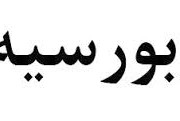آغاز ثبت نام بورسیه «مدیریت پایدار آب» یک موسسه آلمانی
A print version of this announcement (PDF) is available in the further tabs (e.g. “Application requirements”).
One of the priority funding points to which the Federal Ministry of Education and Research (BMBF) attaches particular importance in its Framework Programme on “Research for Sustainable Development” (www.fona.de/en) is Sustainable Water Management – NaWaM:
“One of the major challenges of the future is to ensure the supply of clean water to the world population. Population growth, water pollution and the increasing water consumption per capita have a strong impact on water quality. In addition, expansive climate changes and change in land use influence global and regional water cycles and thus question the medium and long-term availability of water.” In view of this background, the BMBF specifically promotes research projects to develop, adapt and internationally disseminate technologies and strategies for the sustainable management of the resource “Water”. Of particular interest in this context are the thematic fields of Water and Energy, Water and Health, Water and Nutrition, Water and Environment, as well as Water in Urban Areas.
The DAAD Special Programme funded with the resources of the BMBF on “Sustainable Water Management” is focused on the promotion of young scientists from Brazil, Chile, Iran, Jordan, Kazakhstan, Mongolia, Namibia, Peru, South Africa and Vietnam.
The programme “Study Scholarships and Research Grants for Foreigners” offers highly-qualified students from the above countries the opportunity to study in selected English-language master degree programmes at German universities in the thematic fields of sustainable water management. Studies are to be carried out in Germany. The objective of the programme is to qualify experts in sustainable water management technology for the respective home countries, to enhance technological cooperation between those countries and Germany.
Who can apply?
Applications are open to excellently qualified bachelor graduates from the above-mentioned countries who graduated in disciplines with relevance to sustainable water management no longer than six years ago.
What can be funded?
Applicants have the opportunity to study in one of the following master degree programmes:
Master’s Programme Hydro Science and Engineering
Higher Education Institution: Technical University Dresden
Web: www.hse-master-programme.de
Contact Person: Dr. Sabine Hahn-Bernhofer
E-Mail: contact@hse-master-programme.de
Water Resources and Environmental Management
Higher Education Institution: Leibniz University Hannover
Web: www.watenv.de
Contact Person: Eva Starke
E-Mail: watenv@iww.uni-hannover.de
Water Resources Engineering and Management
Higher Education Institution: University of Stuttgart
Web: www.warem.uni-stuttgart.de
Contact Person: Anne Weiss
E-Mail: warem@iws.uni-stuttgart.de
Water Science
Higher Education Institution: University of Duisburg-Essen
Web: www.uni-due.de/water-science
Contact Person: Dr. Jolanta Polkowska
E-Mail: water-science@uni-due.de
Integrated Water Resources Management IWRM
University of Applied Sciences Cologne
Web: www.iwrm-master.info/de/
Contact Person: Jörn Trappe
E-Mail: info-iwrm@itt.th-koeln.de
Please choose one of these degree programmes that meets your expectations and indicate this programme as well as one alternative programme in your application.
The scholarship includes an obligatory, six-month non-university internship in Germany. Eligible types of companies and organizations are listed in the attachment.
Applicants are obliged to attend an accompanying German course during their studies, preferably a free-of charge course offered by the host institution if available.
Please note: Applications for support for only part of a master programme, e.g. only the second year, or a second Master Degree cannot be accepted.
Duration of the funding
۳۶ months (24-month master degree programme, plus 6-month German language course prior to the programme, plus 6-month internship preferably at the end of the studies). The duration of the grant is decided by a selection committee.
Fixed Schedule
German course: April – September 2018
Host institute: October 2018 – September 2020
Internship: October 2020 – March 2021
Value
- Six-month intensive language course prior to the start of the research stay
- Monthly payments of 750 Euro
- Annual research allowance of 460 Euro
- Flat-rate travel allowance for outward and return journey
- Payments towards health, accident and personal liability insurance cover
Under certain circumstances, master grant holders may receive the following additional benefits:
- Monthly rent subsidy
- Monthly allowance for accompanying family members
- Payment of course fees for the online language course “Deutsch-Uni Online (DUO) (www.deutsch-uni.com) for six months after receipt of the Scholarship Award Letter
- Allowance for a self-chosen German language course during the grant period if free-of-charge courses are not offered by the host institution
Reimbursement of the fees for the TestDaF test which is either taken in the home country after receipt of the Scholarship Award Letter or in Germany before the end of the grant period.
Please note: Study trips or field work outside of Germany cannot be funded.
Selection
Applications will be reviewed by an independent selection committee consisting of experts in the relevant fields.
The decisive selection criteria for master students are the soundness of the academic and career plans as described in the motivation letter, the achievements during the studies in the home country, the quality of the bachelor’s thesis and the English language skills.
Experience abroad and knowledge of other foreign languages can be of significance. Additional documents that prove academic capability or provide information about extracurricular activities will also be considered in the selection process.
 کنکوری کنکوری تدریس معلم خصوصی در منزل از ابتدایی تا دبیرستان ریاضی فیزیک زیست در تهران
کنکوری کنکوری تدریس معلم خصوصی در منزل از ابتدایی تا دبیرستان ریاضی فیزیک زیست در تهران


